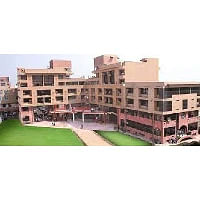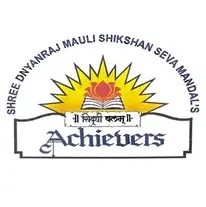BAF Subjects and Syllabus

The Bachelor in Accounting and Finance (BAF) is an undergraduate degree of three years that is designed to give students the understanding related to accounting, taxation, and finance. The BAF subjects include accounting, finance, taxation, auditing, and risk management, with the added topics of the Bachelor of Commerce. The BAF syllabus is covered over six semesters, with a focus on projects and internships. The core BAF subject covers topics related to microeconomics, macroeconomics, auditing, financial management, and business regulatory framework.
Students can also elective subjects like international finance, indirect taxes, corporate governance and ethics, etc. The BAF course helps students to learn technical knowledge related to capital budgeting, risk assessment, and time value of money which helps them to work in a range of roles like financial analyst, risk analyst, consultant, etc. The BAF career scope is comparatively promising with top recruiters such as Deloitte, Ernst & Young (EY), and PricewaterhouseCoopers (PwC). Apart from this, several top banks and financial institutions too provide placements. The BAF average salary package ranges between INR 5 LPA to INR 8 LPA.
BAF Syllabus and Subjects Highlights
Some of the important and crucial information related to the BAF subjects and syllabus have been listed in the table below for the candidate's easy reference.
| Particulars | Details |
| Course Name | Bachelors in Business and Finance (BAF) |
| BAF Course Duration | 3 years |
| BAF Total Semesters | 6 (2 each year) |
| BAF Course Focus | Accounting, Finance, and Business related fields |
BAF Core Subjects and Electives Subjects
The BAF course provides a comprehensive understanding of accounting and finance principles and prepares students for a career in the field. The Bachelor of Accounting and Finance subjects are generally divided into two categories: core and elective subjects. The BAF subjects list consists of the following:
Core BAF Subjects
Below listed are the BAF core subjects along with topics covered in each subject:
|
BAF Core Subject |
Topics Covered |
|
Micro-Economics |
Supply and Demand, Market Structures, Consumer Behavior, Elasticity, Production and Cost, Market Failures, Utility, Game Theory |
|
Direct Tax |
Income Tax Act, Tax Deductions, Taxable Income Calculation, Capital Gains Tax, Tax Planning, TDS, Advance Tax, Tax Return Filing |
|
Business Communication |
Written Communication, Oral Communication, Business Correspondence, Presentation Skills, Report Writing, Business Etiquette, Interpersonal Skills, Cross-Cultural Communication |
|
Cost Accounting |
Cost Concepts, Cost Behavior, Cost-Volume-Profit Analysis, Budgeting, Standard Costing, Variance Analysis, Activity-Based Costing |
|
Financial Accounting |
Accounting Principles, Financial Statements, Journal Entries, Ledger, Trial Balance, Financial Ratios, Cash Flow Statements |
|
Business Statistics and Mathematics |
Probability Distributions, Descriptive Statistics, Regression Analysis, Time Series Analysis, Correlation, Mathematics for Business Applications |
|
Information Technology Application in Business/Accounting |
Accounting Software, Database Management, E-commerce, IT Security, ERP Systems, Data Analysis Tools, Information Systems in Accounting |
|
Management Concept Basics |
Planning, Organizing, Directing, Controlling, Decision Making, Organizational Structure, Leadership Styles, Motivation Theories |
|
Business Law |
Contract Law, Company Law, Partnership, Sale of Goods Act, Negotiable Instruments, Consumer Protection, Competition Law |
|
Macro Economics |
National Income, Unemployment, Inflation, Fiscal Policy, Monetary Policy, Economic Growth, International Trade, Economic Indicators |
|
Auditing |
Audit Planning, Internal Control, Audit Reports, Audit Evidence, Audit Sampling, Forensic Audit, Independence and Ethics in Auditing |
|
Financial Management |
Capital Budgeting, Working Capital Management, Capital Structure, Dividend Policy, Risk Management, Time Value of Money, Leverage, Financial Markets |
|
Business Regulatory Framework |
Regulatory Environment, Business Ethics, Corporate Governance, Legal Aspects of Business, Regulatory Compliance, Business and Society |
BAF Elective Subjects
Below listed are elective subjects in BAF which may vary from college to college:
|
BAF Elective Subjects |
Topics Covered |
|
Indirect Taxes |
Goods and Services Tax (GST), Customs Duty, Excise Duty, Service Tax, VAT, Central Sales Tax, Entertainment Tax, State-specific Taxes |
|
Portfolio Management and Security Analysis |
Asset Allocation, Risk Assessment, Security Valuation, Portfolio Diversification, Fundamental Analysis, Efficient Market Hypothesis, Capital Market Theory, Modern Portfolio Theory |
|
Corporate and Security Law |
Company Law, Securities Regulation, Corporate Governance, Mergers and Acquisitions, Insider Trading, Corporate Compliance, Corporate Ethics, Legal Aspects of Contracts, Corporate Social Responsibility (CSR) |
|
International Finance |
Foreign Exchange Markets, Global Capital Flows, Exchange Rate Mechanisms, International Trade Finance, Cross-Border Investments, Multinational Corporations, Hedging Strategies in Global Markets |
|
Corporate Governance and Business Ethics |
Board Practices, Ethical Decision-Making, Corporate Social Responsibility (CSR), Whistleblowing, Corporate Citizenship, Stakeholder Management |
|
Operations Research |
Optimization, Decision Analysis, Quantitative Techniques, Linear Programming, Game Theory, Queuing Theory, Simulation, Network Analysis, Inventory Management |
|
Advanced Financial Services |
Financial Planning, Wealth Management, Risk Management in Financial Services, Financial Derivatives, Financial Advisory, Financial Regulations, Fintech in Financial Services |
|
Entrepreneurship Management |
Business Start-ups, Innovation and Creativity, Business Model Development, Funding and Financing, Market Research, Risk Management for Entrepreneurs, Social Entrepreneurship |
|
Investment Analysis |
Financial Markets, Equity Research, Derivatives, Technical Analysis, Fundamental Analysis, Investment Strategies, Behavioral Finance, Portfolio Optimization |
|
Forensic Accounting |
Fraud Detection, Investigation Techniques, Forensic Auditing, Financial Crime Prevention, Legal Aspects in Forensic Accounting, Cyber Forensics |
Semester Wise BAF Syllabus
The BAF syllabus is designed to prepare students to learn techniques and methods commonly used in the banking sector. In the curriculum, students study a wide range of financial, accounting, business, taxation, cost accounting, commerce, economics, and risk management.
The following is the semester-wise BAF syllabus along with BAF subjects:
BAF First Year Syllabus
BAF 1st year syllabus focuses on fundamental concepts related to financial accounting, business communication, business economics, business mathematics and statistics, business law, etc. The table below contains the BAF subjects 1st year:
|
Semester I |
Semester II |
|
Foundational Cost Accounting-I |
Business Communication-II |
|
Business Environment |
Special Accounting Areas- I |
|
Micro Economics |
Financial Accounting-II |
|
Foundation Course-I (Commercial Environment) |
Business Regulatory Framework- I |
|
Financial Accounting-I |
Direct Taxation-I |
|
Business Communication-I |
Business Statistics and Mathematics-I |
BAF Second-Year Syllabus
BAF 2nd year syllabus covers topics like amalgamation, reconstruction, liquidation, and holding company accounts, capital budgeting, working capital management, dividend decisions, etc. The table below contains the BAF semester 3 subjects and BAF semester 4 subjects:
|
Semester III |
Semester IV |
|
Macro Economics |
Special Accounting Areas-III |
|
Methods of Cost Accounting-II |
Financial Market Operations |
|
Techniques of Auditing and Audit Procedures |
Information Technology Application in Business/Accounting |
|
Special Accounting Areas-II |
Direct Taxes-II |
|
Business Regulatory Framework-II |
Foundation Course -II (Value Education and Soft Skill) |
|
Introduction to Management |
Company Law |
|
Business Statistics and Mathematics-II |
Financial Accounting-IV |
BAF Third-Year Syllabus
BAF 3rd year syllabus focuses on concepts related to complex accounting principles, enhance their skills in financial analysis, and provide comprehensive knowledge of legal and regulatory frameworks governing business practices. The table below contains the BAF subjects in the 3rd year syllabus:
|
Semester V |
Semester VI |
|
Financial Accounting -V |
Financial Accounting -VII |
|
Cost Accounting-III |
Cost Accounting – IV |
|
Financial Management -I |
Financial Accounting – VIII |
|
Project Work |
Financial Management-II |
|
Financial Accounting-VI |
Elective-II |
|
Elective-I |
Internship/Project Work-II |
|
Direct Taxes-III |
- |
College-Wise BAF Syllabus
The BAF syllabus differs depending on the structure and aim of the program across institutions. Students can get the BAF syllabus pdf from the university website to better grasp a better understanding of the BAF subjects offered by specific institutions. The following is the BAF syllabus of top colleges offering the course:
HR College of Commerce and Economics BAF Syllabus
BAF syllabus at HR College of Commerce and Economics helps students with theoretical foundations and practical applications, honing analytical skills crucial for the accounting and finance sector. Below listed is the BAF subjects list:
|
Semester 1 |
Semester 2 |
|
Macro Economics |
Business Law-II |
|
Financial Accounting-I |
Financial Accounting-II |
|
Cost Accounting-I |
Cost Accounting-II |
|
Business Law-I |
Auditing-I |
|
Business Statistics and Mathematics-I |
Understanding Business Communication |
|
Information Technology Basics |
Business Statistics and Mathematics II |
|
Indian Society and State: Contemporary Issues |
Human Society and Personality |
|
Semester 3 |
Semester 4 |
|
Financial Accounting-III |
Financial Accounting-IV |
|
Cost Accounting-III |
Concept of Corporate Law-II |
|
Concept of Corporate Law-I |
Accounting and Finance Research Methodology |
|
Accounting IT-I |
Cost Accounting-IV |
|
Auditing-II |
Management Concepts |
|
Direct Taxes-I |
Auditing-III |
|
Financial Management-I |
Direct Taxes-II |
|
Understanding Financial Market and Services |
Financial Management-II |
|
Semester 5 |
Semester 6 |
|
Financial Accounting-V |
Financial Accounting-VII |
|
Financial Accounting-VI |
Project Work |
|
Elective-I |
Elective-I |
|
Elective-II |
Elective-II |
|
Elective-III |
Elective-III |
|
Elective-IV |
Elective-IV |
|
Internship |
- |
Mumbai University BAF Syllabus
Mumbai University BAF subjects focus on understanding key concepts related to financial accounting, management accounting, taxation, and business law. Below listed is the BAF subjects semester wise for Mumbai University
|
Semester 1 |
Semester 2 |
|
Business Environment -I |
Foundation to Innovative Financial Services |
|
Understanding Business Economics-I |
Business Law Foundation |
|
Business Communication-I |
Auditing-I |
|
BAF Foundation Course |
Business Communication-II |
|
Financial Accounting-I |
Concept of Business Mathematics |
|
Cost Accounting-I |
Financial Accounting-II |
|
Financial Management-I |
- |
|
Semester 3 |
Semester 4 |
|
Advanced Business Law |
Financial Accounting-IV |
|
Understanding Business Economics-II |
Advanced Direct Tax Concepts |
|
Direct Taxes Concept |
Management Accounting |
|
Financial Accounting-III |
Auditing-III |
|
Banking Principles and Practices |
Understanding Wealth Management |
|
Skill Enhancement Course |
Elective-I |
|
Ability Enhancement Course |
Skill Enhancement Course |
|
- |
Ability Enhancement Course |
|
Semester 5 |
Semester 6 |
|
Financial Accounting-V |
Project Work |
|
Financial Accounting-VI |
Viva |
|
Elective -II |
Research Methodology Basics |
|
Elective-III |
- |
|
Summer Internship |
- |
BAF Entrance Exams
There are several entrance exams conducted for candidates who wish to tak admission into the BAF course. Some of the commonly conducted BAF entrance exams in India are as follows:
- CUET UG
- NMIMS
- NMAT
- DU JAT
- IPU CET
- LPU NEST
BAF Entrance Exam Syllabus
Candidates need to qualify the above listed exams to get into their desired courses. The detailed BAF entrance exam syllabus along with the topics included have been listed below for the candidate's ease.
| Section | Topics Included |
| Quantitative Ability |
Numbers and Operations, Algebra, Profit and Loss, Ratio and Proportion, Time and Work, Speed and Time, Pecentage, Basic Statistics, Data Interpretation |
| English Language | Reading Comprehension, Synonyms, Sentence Correction, Vocabulary, Essay Writing |
| General Awareness | Business Terminologies, Indian and Global Economy, Finance Basics, Current Events, Economic Principles, Basic Science and Technology |
| Logical Reasoning | Analogies, Puzzles, Data Sufficiency, Deductive Reasoning, Syllogisms, Coding and Decoding |
| Accounting and Finance Basics (Optional) | Financial Statements, Journal Entries, Investments, Basic Accounting Principles. Financial Markets, Basic Financial Ratios |
BAF Distance Syllabus
The Bachelor in Accounting and Finance course can also be pursued in distance learning, however, the syllabus is slightly different. The syllabus varies from one institution to other, while only the core subjects remain the same throughout.
BAF Distance Core Syllabus
The list of core subjects are as follows:
| Accounting | Business Mathematics |
| Cost Accounting | Finance |
| Business Law | Economics |
| Mathematics | -- |
BAF Distance Optional Subjects
The list of optional subjects are as follows:
| Banking and Financial Services | Insurance |
| Risk Management | International Business |
| Human Resource Management | Taxation |
| Operations Management | Research Methodology |
| Investment Analysis | Marketing |
| Entrepreneurship | Infirmation Technology Management |
Bachelor of Accounting and Finance Course (BAF Course Structure)
The BAF course is a mix of theoretical learning and practical application of accounting and financial concepts. It is mandatory to complete a research project by the end of the sixth semester to gain practical and theoretical skills. The following is the course structure:
- VI Semesters
- Core Subjects
- Elective Subjects
- Practical Workshops
- Research Project/Thesis Submission
BAF Teaching Methodology and Techniques
The BAF syllabus integrates a variety of methods of teaching accounting and finance with new technologies. The students are also exposed to electives from different specializations in addition to lectures and practicals.
In general, the following teaching methods are used:
- Questioning and Testing
- Explaining and Lecturing
- Case Study
- Group Projects
- Guest Lectures
- Internship
BAF Projects
The BAF curriculum includes research projects that will help students gain experience in managing projects in actuarial firms. BAF course projects will teach students about factors that influence the success of research projects and strategies for implementing them.
The following are some of the most popular BAF project topics:
- Use of Financial Statements in Assessing an Organization’s Performance.
- Effect of Budgetary Controls on Organizational Performance.
- An Analysis of Union Bank’s Performance Appraisal Process.
- Enhancing Accountability and Transparency in Corporate Organizations through Audit Independence.
Best BAF Books
BAF books help students understand the concepts related to financial accounting, budgeting, financial management, etc. Below listed are a few important BAF books for reference:
|
BAF Books |
Topics Covered |
Author |
|
Financial Accounting |
Accounting Principles, Financial Statements, Transactions, etc. |
Dr. S. M. Shukla |
|
Management Accounting |
Costing, Budgeting, Decision Making, etc. |
Dr. S. M. Shukla |
|
Business Law |
Contract Law, Company Law, Legal Aspects, etc. |
M. C. Kuchhal |
|
Corporate Accounting |
Consolidation, Mergers, Amalgamation, etc. |
Naseem Ahmed |
|
Cost Accounting |
Cost Concepts, Costing Methods, Cost Analysis, etc. |
M. N. Arora |
|
Business Mathematics |
Mathematical Tools, Financial Mathematics, etc. |
Dr. A. C. Gupta |
Top BAF [Bachelor of Accounting and Finance] Colleges
BAF Fee Structure
FAQs on BAF Syllabus and Subjects
Q: What are the subjects in BAF?
Q: What are the BAF elective subjects?
Q: Which project topics can I select for the BAF dissertation project?
Q: What are the important BAF books in the first year?
Q: What is the duration of BAF each semester?
Q: How are assessments done in BAF course?
Q: What topics are covered in the advanced finance course?
Q: What topics are covered in BAF sem 2 subjects?




